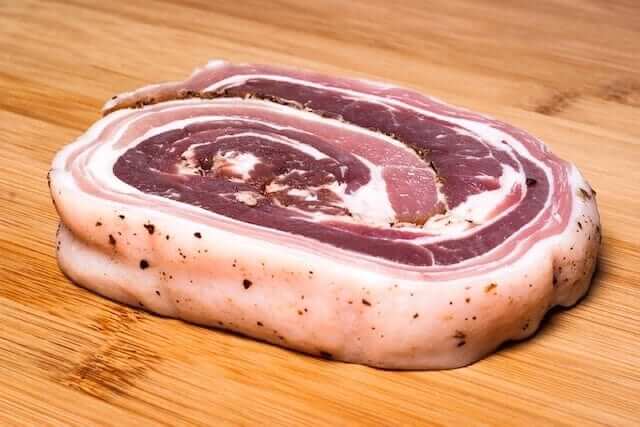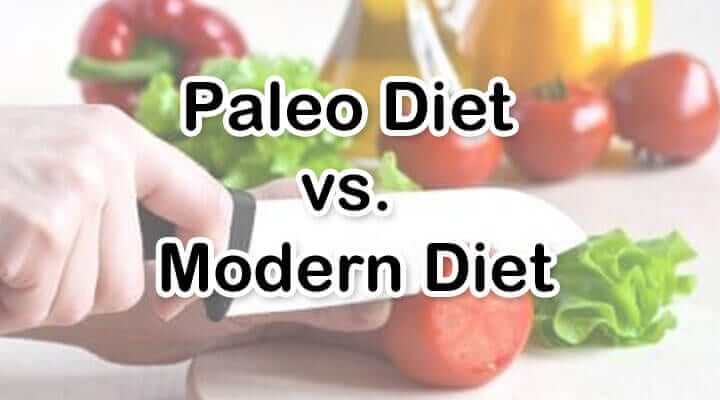What Types of Fats Can You Eat on the Paleo Diet?
Nutritionists have been arguing for years over which fats are good and which are bad. This debate has spilled over to many diets and is a hot topic for Paleo diet followers and skeptics as well. Find out what the Paleo view is on the sources, types and amounts of fats you should consume for…
This post may contain affiliate links. Please read our disclosure policy.
Nutritionists have been arguing for years over which fats are good and which are bad. This debate has spilled over to many diets and is a hot topic for Paleo diet followers and skeptics as well. Find out what the Paleo view is on the sources, types and amounts of fats you should consume for better health.
Types of Fats
There are different types of fats, some which are deemed healthy and beneficial to the body, while others have the exact opposite effects. The debate about fats revolves around which fats cause weight gain and raise cholesterol. Here is a brief overview of the kinds of fats available.
Monounsaturated
Monounsaturated fats are considered to be the healthiest kind. These fats come from natural foods like nuts, seeds, avocadoes and olives. This includes the cooking oils made from these foods like avocado oil, olive oil, macadamia and other healthy oils.
Polyunsaturated
These kinds of fats are usually described as hybrids consisting of both monounsaturated and saturated fats. They have been classified as healthy because of their ability to lower bad cholesterol. However, many nutritionists including Paleo diet experts, are still wary of its effects on your health.
Saturated
These are perhaps some of the most talked about kinds of fats in the nutrition world. Although most experts agree that these fats increase cholesterol and the risk of heart disease, some still argue that they are not all unhealthy.
Trans
There is no disagreement about how unhealthy and dangerous consuming Trans fats is. They are the most artificial of all fats and can be found in many processed oils. Because oils with Trans fats are easier and faster to cook with, many fast food outlets use it to prepare food.
Omega Fatty Acids
These are a kind of fats found mostly in seafood, seeds and nuts. They are classified into omega 3s and 6.
Fats you can eat on the Paleo Diet
From the above list of fats, it comes as no surprise that the Paleo diet encourages monounsaturated fats. These are fats that can be sourced from nuts, seeds and natural, unrefined cooking oils. They are preferred because the fats help reduce LDL cholesterol, therefore cutting your risk of getting heart disease in half.
These are also the kinds of fats your body needs the most. They are used by different cells for energy and other important uses. However, they are still high in calories. If dieters overeat these fats, the body will have more than it needs and will store excess as body fat.
Another type of fats the Paleo diet allows are omega fatty acids. This fat can be sourced from fish and other seafood, especially salmon. They have various uses in the body, some of which include reducing inflammation associated with conditions like heart disease and arthritis. They are also known for being good for the brain.
Omega fatty acids are unique in that dieters need to maintain a healthy balance between omega 3 and 6. These fatty acids play off each other, and if you overload on one and neglect the other, you might experience some negative health effects.
Having high levels of omega 6 without enough omega 3 can lead to diseases like:
- Diabetes
- Obesity
- Heart disease
- Arthritis
- Irritable bowel syndrome
- Metabolic syndrome
Fats You Cannot Eat on the Paleo Diet
The Paleo diet is based on intensive research that suggests some fat is not healthy and can have dangerous effects on the body. As a result, the diet excludes these fats to ensure dieters enjoy the healthiest diet possible and avoid a myriad of diseases for longer life.
Saturated fats
The diet tries to eliminate saturated fats as much as possible. This is because saturated fats increase cholesterol, which triggers a range of illnesses and symptoms. The fat is commonly found in many meats, dairy, hydrogenated cooking oils, baked goods and processed meats. Because fats raise LDL cholesterol, dieters who indulge in the mentioned foods can potentially experience:
- Thickened, narrow or clogged arteries
- Plaque buildup in the heart
- Chest pains
- Damaged brain cells leading to stroke
- Bile imbalance in the stomach causing digestive problems
- Abdominal pains
- Bloody, irregular stools
- Jaw pain
- Gallstones
High cholesterol is very harmful to the body and is the catalyst behind the many symptoms and disease people experience today. The Paleo diet urges dieters to go back to the hunter-gatherer era where saturated fat was hardly consumed and heart disease was rare.
To achieve this, dieters should:
- Eat organically raised animal meat
- Avoid processed meats and those with excessive marbling
- Avoid dairy products and refined oils
- Avoid commercially baked and processed foods
Trans fats
Although there is some debate about saturated and polyunsaturated fats, nutritionists agree that there is nothing good about trans fats. In fact, experts say that it is the worst kind of fat a human being can ever eat. Although this fat is found naturally in some foods, most of it is manufactured by partially hydrogenating oils and then adding these oils to foods.
Most people wonder why food producers are even allowed to use trans fats given their effects on health. The reason why the fats are used is because they have a longer shelf life. In other words, processed foods with this fat last longer and its cooking oil can be used repeatedly without changing it.
Trans fats are most prevalent in:
- Fried foods (fast food)
- Baked goods
- Snacks like potato chips, microwave popcorn and many packaged goods
- Dough and products made from it (biscuits, frozen pizzas, etc.)
- Products made from vegetable oils (margarine, cream, etc.)
Trans fats not only raise bad LDL cholesterol, they also decrease good HDL cholesterol. This double action is detrimental for your heart and is a precursor to cardiovascular disease, strokes, gallstones and many other illnesses.
Polyunsaturated Fats
Polyunsaturated fats are often referred to as a “mixed bag” by Paleo diet experts. This is because they can be both beneficial and harmful. Vegetable oils, for instance, might contain omega 3 acids that are healthy for your body, but also have too many omega 6 fats, which can cause health problems. This is why Paleo advocates encourage dieters to avoid vegetable and fish oils, peanuts and other foods with polyunsaturated fats.
Fats are an essential part of any meal plan. However, the type of fats you eat have a significant impact on your health. Paleo diet experts advise dieters to stick to monounsaturated and omega fatty acids because they are very healthy. This means, you should avoid saturated, Trans and some polyunsaturated fats whenever possible.




Leave a Comment